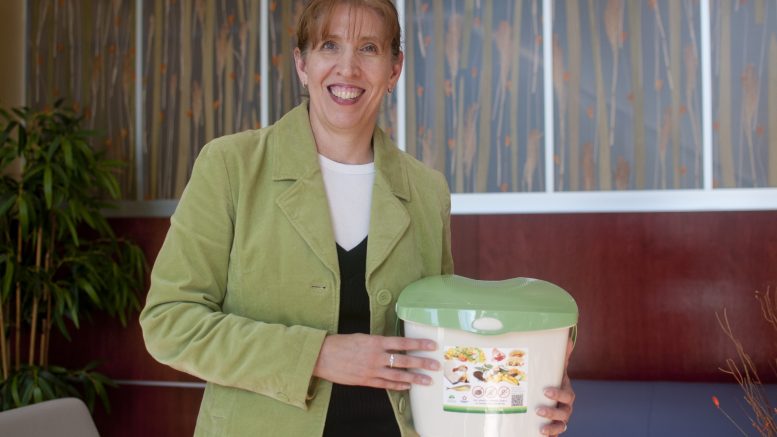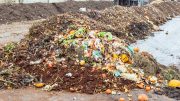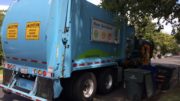Elk Grove residents have the power to combat climate change
Change can be hard. But when it comes to food waste, inaction is worse. Senate Bill 1383 addresses the connection between climate change and wasted food and comes with new rules for residents and businesses, tasking all of us with working together to build a better, cleaner California for ourselves and our future. And it’s going to take everyone doing their part.
“We need everybody to do it, we need every household to recognize what they can do (to reduce food waste),” says Carrie Whitlock, strategic planning and innovation program manager for the city of Elk Grove. “It’s really up to residents to change how they do things to really have an impact on climate change.”
“Inaction would also mean higher air pollution problems. The Sacramento Valley already has a problem with air pollution from just simply being a valley. We would continue to see that air pollution issue and we would continue to see those impacts of climate change.”
Carrie Whitlock, Strategic planning and innovation program manager, City of Elk Grove
A cleaner California with Senate Bill 1383
SB 1383 aims to curtail greenhouse gas pollution created by food waste decomposing in California’s landfills, the largest source of man-made methane emissions in the state. Across the country, landfill gas emissions equivalate to 23 million gas-powered cars on the road.
Instead, organic waste diverted from landfills can be turned into soil amendments used in gardens, as well as to heal wildfire-scarred landscapes and prevent watershed pollution. Anaerobic digestors turn food scraps into clean energy that fuels collection fleets and contributes to power grids. SB 1383 also diverts edible food to food-insecure people through food banks, pantries and more. Organic waste makes up a third of landfill materials. If we sort our food waste we will be able to reduce methane emissions from landfills.
In Elk Grove, Whitlock hopes to share this big-picture view of climate change with residents. As part of its climate action and sustainability planning, the city is implementing SB 1383 regulations to prevent further climate change impacts while mitigating the effects of existing pollution.
“September 2022 was ridiculously hot [with] nine days of 100 degrees or more and then we went to December and January where we had nine atmospheric rivers,” Whitlock says. “Even as we’re now trying to reduce our footprint with greenhouse gasses, it’s going to take a long time to recover from that. We want to start on that sooner so that we can help mitigate those impacts.”
Whitlock explains that greenhouse gasses also contribute heavily to smog and air pollution, familiar problems in the Sacramento Valley.
“Inaction would also mean higher air pollution problems,” she says. “The Sacramento Valley already has a problem with air pollution from just simply being a valley. We would continue to see that air pollution issue and we would continue to see those impacts of climate change.”
Each household has their part to play
For residents, SB 1383 regulations are habits that are not difficult but do require some practice to adopt.
Organic waste like food scraps and leftovers can be thrown into the green waste bin alongside grass clippings and other yard waste. Counter-top kitchen pails for food scraps can be kept in the kitchen or freezer and are free at Elk Grove City Hall. Keep a cheat sheet handy to remind you of what does and does not go into the organic waste bin.
“Prevention is always so much better than a cure,” Whitlock says. “We need to make those changes and we really want residents to be involved and engaged in that effort. A lot of our residents see the importance of that … so it’s really about educating and making it easy for them to do the right thing.”
For more information on how to recycle the right way (plus a printable how-to guide!), visit www.elkgrovecity.org or call 916-478-2228.






























